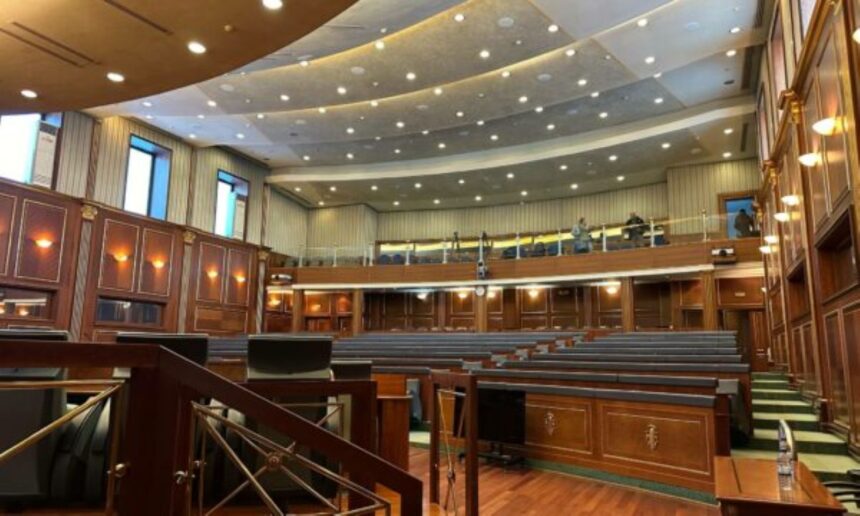This Saturday will mark the 17th attempt to constitute the Assembly of Kosovo following the parliamentary elections held on February 9th. The winning party, Lëvizja Vetëvendosje (LVV), has been unable to secure the necessary votes to elect the Speaker of the Assembly. Their nominated candidate, Albulena Haxhiu, has failed to gain sufficient support in any of the 16 sessions held thus far.
Opposition parties—PDK, LDK, and AAK—have made it clear they will not vote for Haxhiu, while Vetëvendosje insists it will not change its candidate. Sessions are being held every 48 hours, yet quorum or the consensus needed to elect the legislative head has not been reached, leaving the constitutional process and the formation of new institutions in deadlock.
Political analyst Melazim Koci, speaking to Telegrafi, stated that the core issue lies with LVV, which simply does not have the numbers to form a government.
“It’s a rather strange situation, though not difficult to understand. What we’re seeing is essentially a political game being played by both sides—the acting government and the former opposition. Neither has a majority, and I sense they’re stalling for time in hopes of eventually securing the numbers they need,” said Koci.
Koci described the situation as absurd, questioning the logic behind the opposition’s refusal to vote for Haxhiu.
“The Speaker of the Assembly should come from Vetëvendosje, regardless of whether it’s Haxhiu, Bogujevci, or someone else—it wouldn’t make much of a difference. The opposition is making a mistake by not voting for Ms. Haxhiu. That would at least start the 15-day countdown during which Mr. Kurti would either form a government or hand the mandate to the opposition.”
Koci also criticized Kurti for refusing to consider an alternative candidate, implying that this refusal might be masking the fact that LVV lacks the majority.
“If Kurti had the numbers, why risk government formation over Haxhiu’s candidacy? The refusal to change the nominee hints at a lack of parliamentary support.”
He went on to describe the political scene as a theater of the absurd, where both sides are stuck in a vicious cycle and seemingly have no idea how to break the stalemate. Two proposals have been floated:
- LVV’s letter to LDK proposing a coalition, which Koci believes was rejected due to LDK’s internal divisions.
- LDK’s offer for a transitional, all-inclusive government, which hasn’t gained much traction among other parties.
Koci suggested that LDK’s proposal might be the “least bad” solution under the current circumstances since neither side can realistically secure a majority.
“If the transitional government proposal isn’t accepted, political actors must show maturity and reach a political agreement. The Assembly must be constituted, and the Constitution must be amended—specifically Article 67, which only allows the first-placed party to nominate the Speaker. This could help avoid future deadlocks.”
On the other hand, Vullnet Bugaqku, a researcher at the Kosovo Democratic Institute (KDI), expressed skepticism that Saturday’s session would yield results.
“Given the positions held by political parties so far, I don’t expect anything to change. Despite recent consultations with the President, there’s no sign that the deadlock will be broken.”
He added that the same cycle of failed sessions every 48 hours is likely to continue. However, he noted that President Osmani has initiated consultations with party leaders, which might—eventually—help foster a political consensus.
“We’ll have to wait and see how developments unfold next week. Perhaps the President will succeed in facilitating a political consensus that could unblock this situation. If not, the matter might end up in the Constitutional Court, seeking a legal resolution to the stalemate.”
Bugaqku emphasized that new elections cannot be held without first constituting the Assembly, and therefore, a broad political agreement among the parliamentary parties is essential to unlock the crisis.







